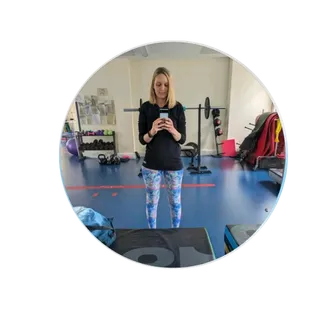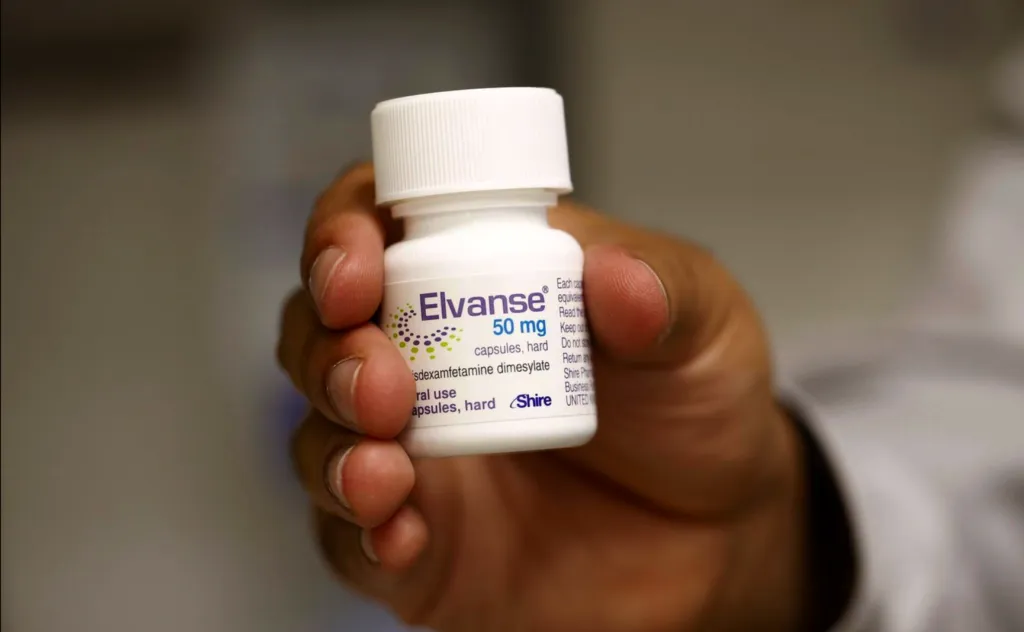Helping You Work With Your Brain, Not Against It
ADHD coaching for real life, whether you’re newly diagnosed, feeling overwhelmed, or just trying to hold it all together.
1:1 support, live group sessions, and practical tools that actually fit how your brain works.
New affordable online coaching launching in

Helping ADHD Minds Find Their Own Way
I’m Fraser, an ADHD coach, father, and former corporate leader who didn’t realise I had ADHD until I was 43.
Like many late-diagnosed adults, I spent years thinking I just wasn’t good enough. I pushed myself hard, burnt out often, and masked my struggles to keep up with a world that didn’t quite fit.
When I finally got diagnosed, everything changed. I stopped blaming myself and started building a life that worked for my brain. Now I help others do the same.
I work with adults who feel overwhelmed, newly diagnosed, or stuck, offering practical strategies, honest conversations, and a place where they don’t have to explain themselves.
Whether it’s 1-to-1 coaching or a structured group programme, the goal is always the same:
To help you feel understood, and to help you move forward.
Does any of this
SOUND FAMILIAR?
You always feel behind, even when you’re working flat out.
There’s a constant mental to-do list running in the background, and even small tasks feel like a mountain.
You’ve been called lazy, disorganised, or too sensitive.
But deep down, you know you’re trying harder than most people realise.
You procrastinate, overthink, and crash hard when you finally stop.
It’s not just time management — it’s emotional exhaustion, decision fatigue, and never feeling like you’re doing enough.
You’ve Googled ‘Do I have ADHD?’ more than once.
Maybe you’ve been diagnosed. Maybe not. But you know something isn’t working, and you’re ready for support that actually makes sense for your brain.

Our Mission
Helping ADHD Adults Feel Less Alone — and More in Control
Whether you're newly diagnosed or have been masking for years, our mission is simple:
Help you understand your brain, stop the spiral of shame, and build a life that actually fits.
How I Can Help
1:1 ADHD
Coaching
Get tailored support with practical tools, calm accountability, and a coach who gets how your brain works.
Perfect if you're ready for personalised help, but not sure where to start.
6-Week ADHD
Group Programme
Live coaching, structure, and a toolkit that actually fits your brain — all in a space where you realise you're not the only one.
Ideal if you want guidance and to hear from others like you.
Free ADHD
Strengths Report
Not ready for coaching? Start with a personalised analysis based on your ADHD traits — and see what’s actually working in your brain.
A zero-pressure way to get insight, hope, and clarity.
What others are saying

"Fraser is awesome"
Fraser is awesome and I enjoyed working with him. He taught me so much and in a way that makes sense to me. He's given me a new found confidence.


"My life changed forever"
He taught me so much and in a way that makes sense to me. He's given me a new found confidence.


"Life was SO hard"
Fraser helped me to turn the waltzers into teacups and calm the chaos, I'm still spinning and dizzy at times but now I get to enjoy the views around me!

Fraser & Cubic write a blog to help you with your ADHD if you aren't ready to reach out for help just yet.

ADHD Medications Guide: Dose, Switching, and Comparison
The Big Picture on ADHD Medications
When I was first diagnosed with attention deficit hyperactivity disorder in my forties, the world of ADHD medications felt like a foreign language. Words like stimulant formulations, ER-MPH doses, and dosage conversion might as well have been written in hieroglyphics. I nodded politely in my first appointment, while inside I was wondering whether I’d ever get my head around it all.
If you’re reading this, you might be in a similar place, whether for yourself, your child, or someone close to you. ADHD medications can be life-changing, but they also come with important details to consider. This guide pulls together clear, relatable information so you can approach appointments and decisions with more confidence.
Before we go further, a quick reminder: everything here is for informational purposes only. I’m not your doctor. ADHD medication decisions should always be made under proper medical supervision.
Understanding ADHD Medications

ADHD medications fall into two main camps: stimulants and non-stimulants. Stimulant formulations remain the most widely used, because they’ve consistently shown strong results in research, including laboratory classroom trials with both children and adults.
The most common stimulants include methylphenidate-based options (like Ritalin and Concerta) and amphetamine-based ones (like Adderall XR in the US, though less common in the UK). Both types target the central nervous system, boosting the levels of brain chemicals that help with focus, motivation, and impulse control.
Non-stimulants, such as atomoxetine, can be used when stimulants cause difficult side effects or aren’t effective enough on their own.
Short-Acting vs Long-Acting

One of the first things that tripped me up was the difference between short-acting stimulants and long-acting forms.
Short-acting stimulants usually last 3–5 hours. They’re sometimes given to pediatric patients or used to top up coverage in the afternoon.
Long-acting forms, often with MR components (modified release), last much longer. For example, Concerta XL or Elvanse (lisdexamfetamine) can cover most of the school or work day.
Some people respond better to one type over the other. Others find that a mixture works best, especially when managing busy days or exam seasons in adolescent psychiatry settings.
UK ADHD Medications in Real Life
In the UK, the main options prescribed are:
Elvanse (lisdexamfetamine) — a long-acting stimulant that lasts through most of the day. This was my starting point, prescribed through ADHD 360, and it gave me that surprising moment of focus when I found myself folding socks.
Dexamfetamine — a shorter-acting stimulant. Some people, like my partner Lou, use this in the morning for a quick burst of focus before their Elvanse has fully kicked in. With four kids and a very neurodivergent household, those early hours can be intense, so having something fast-acting on board really helps.
Amfexa — another dexamfetamine brand, sometimes prescribed as a top-up when Elvanse begins to wear off in the late afternoon. I was given this at one point, and it helped bridge that tricky gap where motivation dipped and I’d usually spiral into stress.
Concerta XL (methylphenidate) — a long-acting form of methylphenidate. When I later switched from Elvanse to Concerta, I noticed a steadier kind of focus and, unexpectedly, my constant ball of anxiety softened.
Equasym XL and Medikinet XL (methylphenidate) — other long-acting methylphenidate options that release differently depending on their design.
Ritalin (methylphenidate immediate release) — usually a short-acting option, often used with children or as an add-on dose.
Non-stimulants like atomoxetine (Strattera) or guanfacine (Intuniv) are also available, especially when stimulants cause too many side effects or aren’t effective.
Dose and Dosage Conversion

One of the trickiest areas for families and adults alike is figuring out doses. You’ll often hear about higher doses or dose titration, which means gradually adjusting until symptoms improve with minimal adverse effects.
Every person’s response is different. Two people of the same age and weight can need totally different amounts, because it depends on their metabolism and how their brain responds to the active components.
There’s also the question of dosage conversion. For example, switching between Ritalin (short-acting) and Concerta (long-acting methylphenidate) requires careful calculation, since the release profiles differ. Similarly, in the US, Adderall XR doses can’t be swapped milligram for milligram with other stimulants.
This is where your healthcare provider is vital. In my case, all my reviews and adjustments with ADHD 360 have been online. It’s been reassuring to know I can check in virtually, rather than sitting in a waiting room or travelling across the country.
Side Effects and Adverse Effects
Let’s be honest — no medication comes without risks. ADHD stimulants carry a high potential for both positive impact and unwanted adverse effects.
Common side effects include:
Loss of appetite or weight loss
Difficulty sleeping
Irritability as the medication wears off (withdrawal symptoms)
Changes in heart rate or blood pressure
In rare cases, stimulants can worsen conditions like bipolar disorder, or cause mood swings that feel overwhelming. This is why ongoing medical supervision is so important. Regular online reviews with ADHD 360 include checks on things like blood pressure and pulse, and they’ve always encouraged me to speak up if something feels off.
Adderall XR and International Differences
If you spend time online, you’ll hear a lot about Adderall XR. It’s widely prescribed in the United States and is an FDA-approved medication. It contains a mix of amphetamine salts and is known for its effectiveness in the treatment of ADHD.
Here in the UK, Adderall is not usually prescribed. Instead, lisdexamfetamine (Elvanse) is more common, often combined with shorter-acting medications like Amfexa or dexamfetamine. For readers elsewhere, just know that different healthcare systems approve different drugs. The principle is the same: amphetamine-based stimulants can be very effective, but they require careful prescribing.
Special Populations: Children, Teens, and Adults
Medication decisions can vary across age groups.
Pediatric patients often start with lower doses, closely monitored for growth and side effects like weight loss.
In adolescent psychiatry, long-acting forms are often preferred to support school routines and reduce the stigma of needing to take pills during the day.
For adults, the focus shifts to managing work stress, family life, and often co-occurring conditions like anxiety or depression.
In all cases, treatment plans need regular review. What worked at age 10 may not be right at 16, and adult stressors can change how the body responds.
What Research Tells Us

Recent laboratory classroom trials and long-term studies show that stimulant medications significantly improve symptom management for many. Still, results differ. Some people experience life-changing improvements, while others notice only subtle changes.
Additional information from research shows that ADHD medications are most effective when paired with lifestyle adjustments, therapy, or coaching. For some, cognitive behavioural therapy helps tackle thought patterns that medication alone can’t reach.
My Lived Experience
When I first started medication, I expected it to be complicated, but to my surprise it felt almost easy. The difference crept in quietly rather than dramatically. One of the first times I noticed the effect was when I found myself folding socks. It might not sound like much, but for me it was huge. I wasn’t forcing myself through a chore or getting distracted halfway through — I simply got on with it. That small shift showed me the medication was doing something my brain hadn’t managed before.
Later, when I switched from Elvanse to Concerta, I noticed other changes. The focus was still there, but it felt steadier, more grounded. I realised my constant ball of anxiety had eased. Tasks felt lighter, and even my body felt stronger — as though my muscles had energy I hadn’t noticed before. It wasn’t about superhero productivity, just a sense that the background noise had turned down.
That said, I’ve recently felt the effects wane a little. Part of me wants to increase the dose, but I know this has to be done carefully and with my provider’s guidance. It’s a reminder that ADHD medication is not a one-and-done solution. It’s an ongoing conversation, adjusting as your life, stress levels, and brain change.
I’ve also coached clients who felt disheartened after the first try didn’t work out. My advice is always the same: give it time, track your symptoms and side effects, and communicate openly with your provider. The right fit is out there, but sometimes it takes patience and a willingness to notice the everyday wins that prove things are changing.
Final Thoughts
ADHD medications can be transformative, but they’re also complex. Between short-acting stimulants, long-acting forms, and international differences like Adderall XR in the US versus Elvanse in the UK, it’s no wonder people feel overwhelmed.
The most important thing is not to go through it alone. Work with your provider, ask questions, and remember that support goes beyond tablets. Coaching, therapy, and community can all help turn medication from a confusing process into part of a sustainable plan for your life.
What Now?
If you’re navigating ADHD medication decisions, you don’t have to do it blind.
My free ADHD Insight Report helps you understand your unique challenges and strengths.
My 1-to-1 coaching supports you through the overwhelm, with strategies tailored to your daily life.
My 6-week course gives you tools, insight, and the reassurance of hearing “me too” from others on the same path.
I do this work because I’ve been where you are. You deserve support, clarity, and a plan that works with your brain. If you have questions, reach out. I’d be glad to hear from you.
STILL NOT SURE?
Frequently Asked Questions
Do I need a formal ADHD diagnosis to join or get coaching?
Nope. Many people I work with are still figuring it out or self-identify based on lived experience. If you resonate with what you’ve read, you’re welcome here.
What’s the difference between 1:1 coaching and the group programme?
1:1 coaching gives you personalised support, we focus completely on your life, goals, and challenges.
The 6-week group programme gives you live guidance alongside others, so you hear real examples and realise you’re not the only one.
I’m not sure what I need yet. Where should I start?
That’s totally normal. The best starting point for most people is the free ADHD Strengths Report. It gives you insight without pressure, and from there, you can decide if coaching or the course feels right.
Is this like therapy?
No, coaching is future-focused and practical. I’m not a therapist, and I don’t work with severe mental health distress. But I do work with people who feel stuck, lost, overwhelmed, or unsure how to manage day-to-day life with ADHD. If we hit something therapy-related, I’ll help you find the right support.
What if I miss a live session in the group programme?
It happens! You'll still get the tools and resources from that week, and I’ll send a recap. This programme is built with ADHD in mind, so flexibility is baked in.
Can I do both the group and 1:1 coaching?
Absolutely. Many people start in the group to get foundational tools and then move into 1:1 for deeper support. Or vice versa. There’s no wrong order, just what works for you.
How much does it cost?
Group Programme: £200 for the full 6 weeks
1:1 Coaching: £100 per session
Free ADHD Strengths Report: £0 — it’s truly free, no catch
What if I’m not ready to commit yet?
That’s okay. Sign up for the free report, or drop me a message with your questions, follow me on social. No pressure. No guilt. Just support when you’re ready.
Reach Out, No Pressure, No Stress
Whether you're curious about coaching, unsure where to start, or just want to ask a question — I'm happy to hear from you. There's no pressure to sign up or commit. Just send a message and I’ll get back to you soon.
07904 711781

